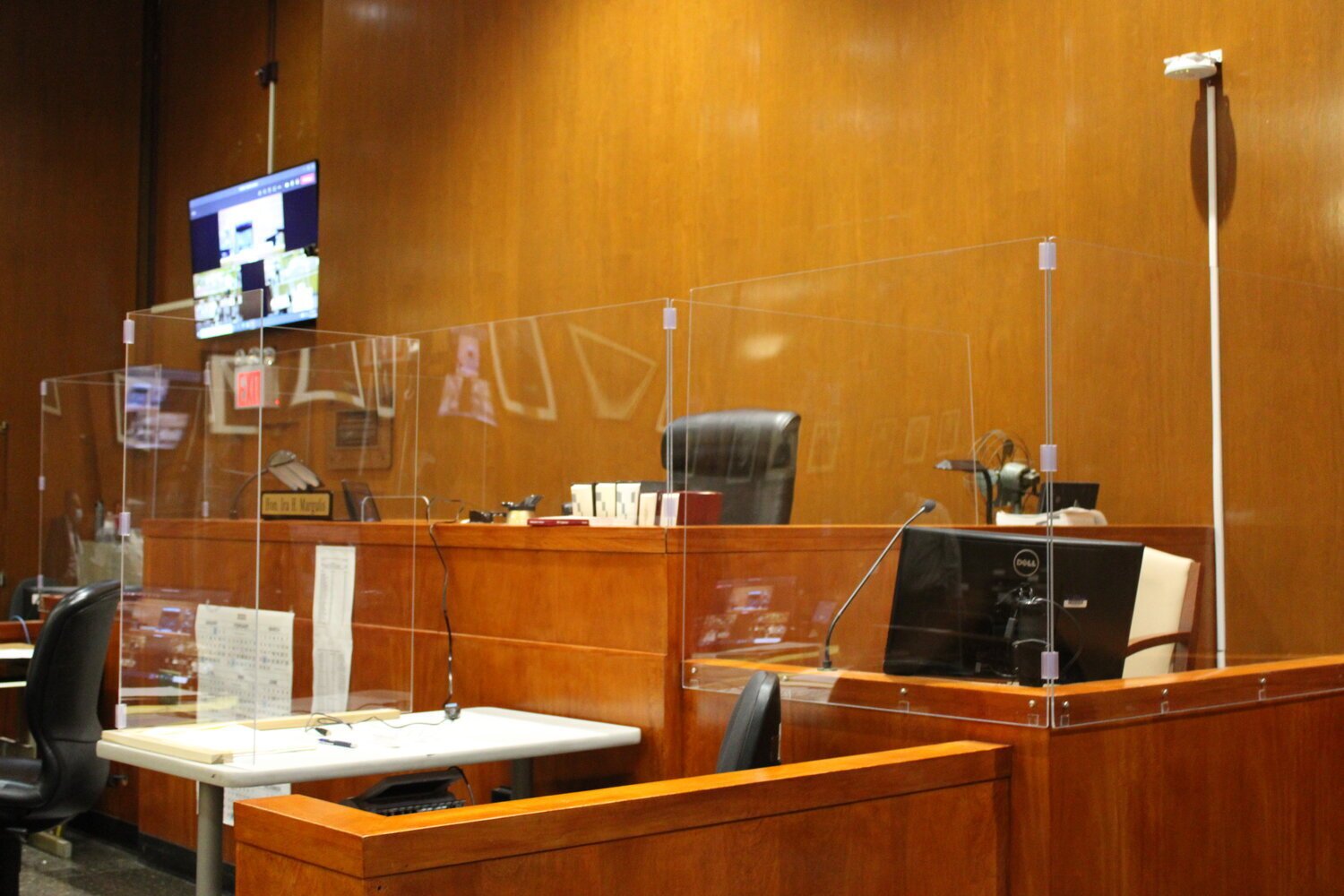Gov vetoes judge recertification bill – again
/A bill that would make the recertification of judges nearly automatic was vetoed by Governor Kathy Hochul just as the year came to a close. Eagle file photo by David Brand
By Jacob Kaye
A year ago, Governor Kathy Hochul pocket vetoed a bill from the state legislature that would have essentially made the recertification of older judges an automatic process.
Now, history has repeated itself after Hochul outright vetoed a new version of the bill a day before the end of the year.
The governor, who began her first full-term as the state’s top executive on Sunday, said that if passed into law, the bill would have opened up the opportunity for judges accused of misconduct a spot back on the bench.
Popular with lawmakers and elected judges, the bill would have made the recertification of judges 70 years or older a pro forma process. Rather than make their appeal to the Administrative Board of the Courts, the judges would be recertified if they proved mentally and physically fit – as they currently need to do – and if there was a proven need for them on the bench, under the legislation.
Once a judge hits the age of 70, they are required to apply for recertification to serve in the judiciary. They are again required to reapply at the ages of 72 and 74, and are required to retire at the age of 76.
Hochul said that the bill would wrongly take “discretion” to recertify judges out of the hands of the board.
“The Administrative Board considers various factors when determining whether to recertify a retiring judge or justice, including, for example, whether the justice has been the subject of complaints or involved in activities that undermine public confidence and trust in the courts,” Hochul said.
“This bill limits this discretion, only allowing the Administrative Board to take into account the justice’s mental and physical capacity and the need for his or her continued service on the bench,” she added. “Therefore, I am constrained to veto this bill.”
In January, Hochul pocket vetoed an earlier version of the bill passed in 2021, allowing the bill to sit on her desk for 30 days without action. This year, she didn’t have that option. After passing the bill nearly unanimously at the very end of the legislative session over the summer, lawmakers sent Hochul the bill on Dec. 19, requiring that she either sign the bill into law or veto it outright.
The bill was crafted after the firing of 46 judges who applied for recertification in 2020 in an attempt to prevent similar situations from happening in the future.
Citing budget concerns brought on by the first year of the pandemic, the Administrative Board – which includes the chief judge and the four presiding justices of the state’s appellate divisions – rejected nearly every recertification application that came their way in 2020. Though a number of the judges were offered an opportunity to reapply for certification in the spring of 2021, only about a quarter of the rejected judges ended up back on the bench.
The austerity move angered a number of judges, court staff and lawmakers, who said they were concerned that the mounting backlogs in the courts required not only as many judges as the state could muster, but judges who had years and decades of experience to deal with the challenges presented by the pandemic.
Queens Supreme Court Justice Carmen Velasquez, who currently serves as the president of the Queens Supreme Court Justices Association, said that it “pains [her] heart to think that the certification bill was vetoed.”
“I’m extremely, extremely disappointed that the governor vetoed the certification bill,” Velasquez said. “She does not understand the horrific time that senior judges endured…[Former Chief Judge Janet] DiFiore’s legacy of terrorizing the senior judges is alive.”
“I truly hope the next chief judge recognizes the need to have clear standards and not use the certification process to terrorize the justices,” she added. “As of today, it’s a cruel and demeaning process.”
While the mass denial of recertification applications has not been repeated, rejections have continued.
In 2022, two of the 15 judges who applied for certification were denied. Among them was Queens Supreme Court, Civil Term Judge Darrell Gavrin, who has served as a Supreme Court justice since 2006.
Bronx Assemblymember Jeffrey Dinowitz sponsored the bill in the legislative body and said that he felt it was “unfortunate that this bill was vetoed, especially at a time when we have enormous case backlogs.”
“This is what I would consider a good government and pro judiciary reform that would have been very helpful to the judiciary as a whole,” Dinowitz told the Eagle on Tuesday. “The bill was introduced in response to the purge by the previous chief judge – to me that was an abuse by the judiciary administration and this legislation would not have prevented judges who for either physical or mental reasons should not have been reappointed, it just would have, in essence, created the assumption that they would be appointed.”
Dinowitz added that he “disagrees” with Hochul’s reason for vetoing the legislation.
“That sounds like a rationalization for vetoing it more than something that's real,” he said. “If somebody is engaged in misconduct, there are procedures that already exist to address that.”
Former Chief Judge Janet DiFiore and former Chief Administrative Judge Lawrence Marks were both opposed to the 2021-2022 version of the bill, which Hochul pocket vetoed. Both cited their concern over judges with misconduct records being reappointed to the bench, as Hochul did in her veto statement.
Though both Marks and DiFiore retired in 2022, court leadership’s position on the bill has not changed.
“We greatly appreciate the governor’s faith in, and recognition of, that by vetoing this wholly overreaching and inappropriate legislation, she has continued to uphold 200 plus years of the separation of powers in this State and simple civics,” Lucian Chalfen, a spokesperson for the Office of Court Administration, told the Eagle in a statement. “And in addition, her belief that the Judiciary will continue to manage its administrative affairs without outside interference.”
While the legislature’s first two attempts to pass the bill have failed, Dinowitz said they’ll likely try again.
“I intend to re-introduce it and to continue to work on it,” he said. “It's an important issue.”




